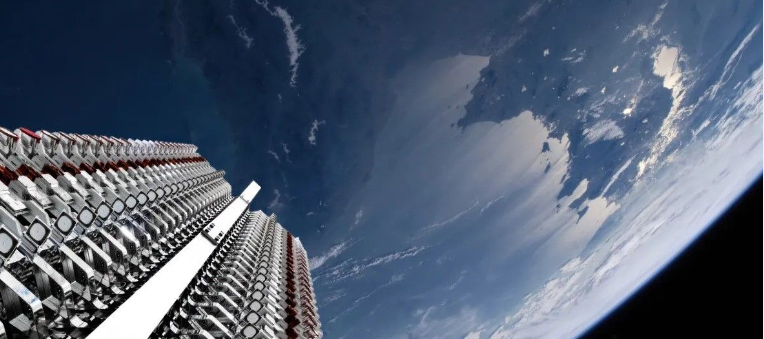
(Photo : Space.com)
- Elon Musk's Starlink is nearing entry into the Indian market, pending security clearance.
- The clearance process requires Starlink to assure data will be processed and stored locally and that satellite signals are secure.
- Mukesh Ambani, Asia's richest man, has expressed concerns about losing broadband customers to Starlink.
- Despite potential challenges, Starlink's entry represents a significant shift in India's telecom sector.
Elon Musk's Starlink, a satellite broadband service, is currently in the process of obtaining security clearance to operate in India. The Indian telecoms minister, Jyotiraditya Scindia, confirmed this development on Tuesday, stating that Starlink would be granted a permit if it meets all the necessary conditions. This move brings Starlink one step closer to Musk's plans of providing broadband services to the Indian market, a sector currently dominated by Mukesh Ambani's Reliance Jio with 14 million wired subscribers.
Starlink's entry into the Indian market has been years in the making, and its plans received a significant boost last month when the Indian government announced that it would not auction spectrum for satellite broadband. Instead, it would award it administratively, a move that Musk had advocated for. This decision was in contrast to the wishes of Mukesh Ambani, a rival Indian telecom billionaire, who had preferred an auction.
The process of obtaining security clearance requires Starlink to assure the Indian government that it will process and store data locally and that its satellite signals are secure. When you check all the boxes, you get the licence. If they (Starlink) do that, we will be very happy, Scindia said at an event in New Delhi.
Ambani's Concerns and Starlink's Compliance
Ambani, who is Asia's richest man and has over 479 million Indian telecom users, has expressed concerns about losing broadband customers and potentially data and voice clients to Musk as technology advances. This concern comes after Ambani spent $19 billion in airwave auctions. However, it's worth noting that Reliance already has security clearance to launch satellite broadband services, according to a source with direct knowledge.
Starlink has communicated to the Indian government its willingness to comply with all of New Delhi's security requirements, said another source familiar with the matter. However, even after obtaining security clearance, companies still need to secure spectrum to start offering satellite broadband services.
Musk's aggressive tactics in the telecom sector are reminiscent of Ambani's strategy of offering free data on his mobile plans. For instance, in Kenya, Musk priced Starlink at $10 per month, compared to $120 in the United States, unsettling local telecom players.
India's Telecom Industry and Historical Context
In related news, Union minister Jyotiraditya Scindia emphasized that all players must address India's security concerns and adhere to a standardized licensing process. He referred to the International Telecommunications Union (ITU), the organization that lays out the policy for spectrum in space or satellites, stating that the ITU has been clear about the spectrum being given out on an assignment basis.
In the broader context, India's telecom industry has seen substantial growth in recent years, with four major players active in the market. Scindia remarked that the range of options available to consumers is broader in India than in most countries, ensuring competition and choice.
In a historical context, Musk's Starlink has faced similar challenges in other markets. For instance, in Sri Lanka, despite a high internet penetration rate of 56.3%, nearly 43.7% of the population remained offline at the start of 2024 due to weak signals in many places. Satellite internet, like Starlink, can reach almost anywhere, including underserved and unserved regions. However, the high setup cost for the satellite internet service raised concerns about whether it would serve the social purpose of having a wide internet outreach.
* This is a contributed article and this content does not necessarily represent the views of btin.co.in









